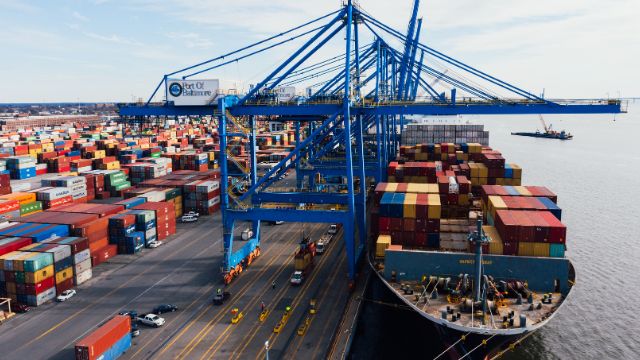Global Commerce: The Role of Shipping Lines in International Trade
In the global landscape of international trade, maritime carriers play a pivotal role in facilitating the movement of goods across borders. These maritime giants are the unsung heroes behind the scenes, connecting nations, businesses, and consumers worldwide. This article delves into the significance of strategic partnerships formed by shipping lines and their critical role in sustaining the intricate web of global commerce.
Foundation of Global Commerce
Container shipping companies, often referred to as shipping lines, are acutely aware of the imperative for collaboration within the intensely competitive realm of their industry. With the persistent expansion of international trade volumes, the call for transportation services that are both efficient and cost-effective has become increasingly urgent. Strategic networking stands as the cornerstone of their response to this demand. Through these alliances, maritime carriers amalgamate their resources, distribute operational responsibilities, and fine-tune their services, yielding advantages that extend to both the companies themselves and their clientele. In this intricate dance of cooperation, the global trade community finds a dependable and streamlined conduit for the movement of goods across borders, supporting the relentless growth of international commerce.

Enhancing Service Coverage
The expansion of service coverage through networks among these lines significantly contributes to their competitive edge in the global transportation industry. By pooling their resources and expertise, these companies can develop an extensive network of routes and destinations that would be challenging to achieve individually. This enhanced global reach not only benefits these lines themselves but also holds immense value for importers and exporters worldwide. It provides them with access to a broader customer base and empowers them to tap into new markets previously beyond their reach, fostering increased trade opportunities and economic growth across diverse regions.
Also Read: Guide To Business Networking: How Does It Work And How To Master It
Efficiency and Economies of Scale
Collaborative efforts result in the optimization of resources and economies of scale. Maritime carriers can share vessel space, infrastructure, and operational costs, reducing the overall expenses associated with container transportation. This efficiency translates into competitive pricing for customers, making international trade more accessible and cost-effective.
Frequency and Reliability
Strategic networking in global commerce allows these lines to increase the frequency of their services. More frequent sailings mean reduced transit times for cargo, ensuring goods reach their destinations faster. Moreover, the pooling of resources often leads to improved vessel reliability and maintenance, minimizing the risk of delays and disruptions.
Environmental Sustainability
In an era of growing environmental consciousness, strong connections can also contribute to sustainability efforts. By sharing resources and optimizing routes, these lines can reduce carbon emissions and minimize their ecological footprint. This not only aligns with global
environmental goals but also appeals to customers who prioritize eco-friendly shipping options.
Navigating Trade Challenges
International trade has its challenges, including regulatory compliance, geopolitical tensions, and economic fluctuations. These advanced collaborations empower these lines to navigate these complexities more effectively. They can combine their expertise and resources to adapt to changing trade regulations, ensuring seamless customs clearance and adherence to international standards.
Risk Mitigation
Through collaborative efforts, these lines can better mitigate risks associated with cargo transportation. Whether it’s addressing piracy concerns in specific regions or safeguarding against natural disasters, pooling resources enhances their ability to respond swiftly and effectively to unforeseen challenges, minimizing potential disruptions.
Technological Advancements
The shipping industry has not been immune to the wave of technological advancements sweeping the business world. A powerful infrastructure provides these lines with a platform to invest in cutting-edge technologies. From blockchain-based tracking systems to automated cargo handling, these innovations enhance efficiency, transparency, and security throughout the supply chain.
Consumer Benefits
Ultimately, it’s the consumers of goods who reap the rewards of shipping line alliances. Enhanced service coverage, competitive pricing, faster transit times, and improved reliability translate into a more satisfactory customer experience. Businesses can better meet consumer demands for timely deliveries and a broader range of products, ultimately driving economic growth.
Global Trade’s Backbone
In conclusion, the role of these lines in international trade must be balanced. These strategic connections form the backbone of global commerce, connecting markets, industries, and economies. By working together, these lines enhance service coverage, optimize operations, and mitigate risks, ultimately providing businesses and consumers with a reliable and efficient means of transporting goods across borders. In a world that relies on the seamless flow of international trade, these bonds serve as the invisible yet indispensable threads that weave nations and businesses together, fostering prosperity and growth on a global scale.


